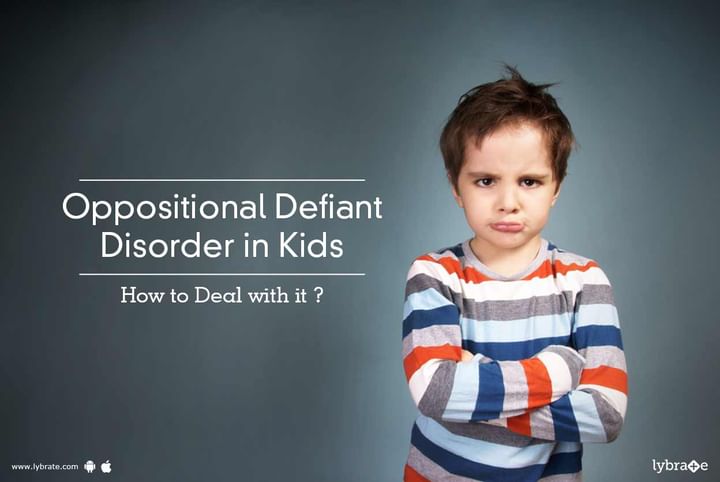Oppositional Defiant Disorder in Kids - How to Deal with it ?
A child’s tantrums, especially during teens, are quite common. However, there could be some children who could be exhibiting an extreme version of these symptoms. This is known as oppositional defiant disorder.
Children with this disorder become easily irritable, angry, argumentative, defiant and feel vindictive against most elders (parents, teachers, and others). While this is something very common and can be ignored to be a part of teenage tantrums, the issue is when these symptoms do not seem to end. If they persist for beyond 6 months, it is time to worry. These may then begin to interfere with their daily activities including schooling, where they may not be easy for the teacher to manage.
Diagnosis of ODD: With the changing behaviour of teenagers, it is often difficult to pinpoint and say there is ODD. However, some guidelines for diagnosis are listed below. Angry/irritable, argumentative, defiant and vindictive. If these symptoms are seen for more than 6 months with no inducing reason, happens with non-siblings, and is affecting learning and playing, it is highly likely the child has ODD.
These symptoms can occur at home, at school, or in other settings – seen respectively in one, two, or more settings. Some of the symptoms are listed below.
- Repeated temper tantrums
- Anger bursts, swearing, using obscene language
- Extremely argumentative, especially with people in authority (teachers, parents, etc.)
- Annoying others and getting annoyed easily
- Noncompliance to rules and regulations at school and institutions
- Defending one’s mistakes and blaming others for it
- These result in poor academic performance, antisocial behavior, substance abuse, and higher suicidal tendencies.
Treatment
Treatment depends on the presenting symptoms, the age of the child, and supportive care available. The child should be able to actively take part in psychotherapy to reap good benefits. It would otherwise be a task with no results.
- Psychotherapy will help the child improve its cope and express and control anger. This also improves problem-solving skills.
- Cognitive-behavioural therapy tries to mould the behaviour.
- If required, the parents also would be involved to improve family’s involvement in the treatment. Caretakers are given special training if required so that they can support in long-term medical care.
- The child also needs to be trained for appropriate behaviour under different circumstances.
- Rewards for positive behaviour and punishments for negative behaviour are useful ways.
Prevention: Early identification can help in minimizing distress to the family and help in the early arrest of the disease. The family is also taught basic and simple steps which can help in supporting therapy. Early rejection at school and loss of learning, can happen which can be managed with early intervention. A nurturing and supportive family can help manage the child very well. If you wish to discuss about any specific problem, you can consult a doctor and ask a free question.



+1.svg)
